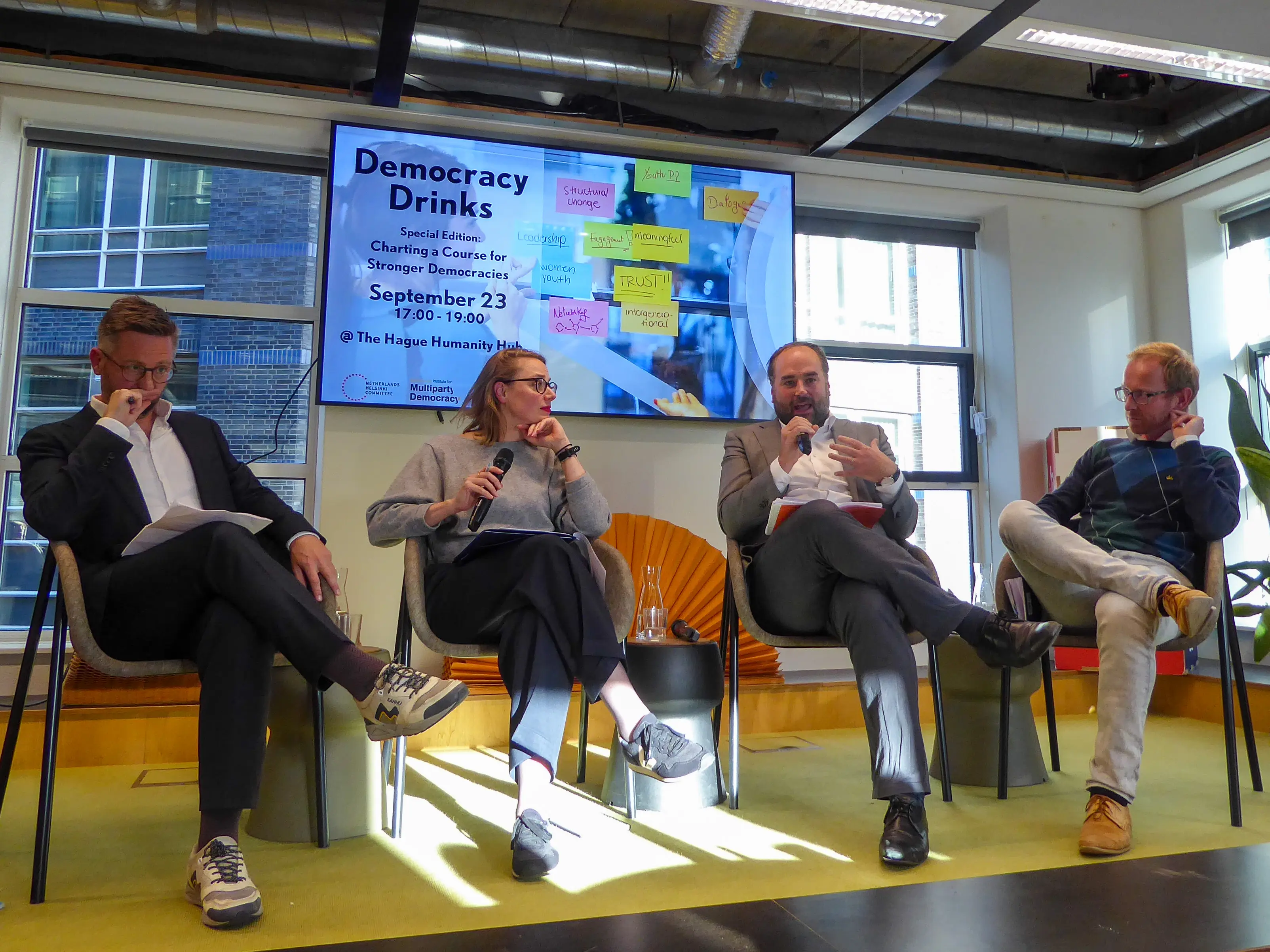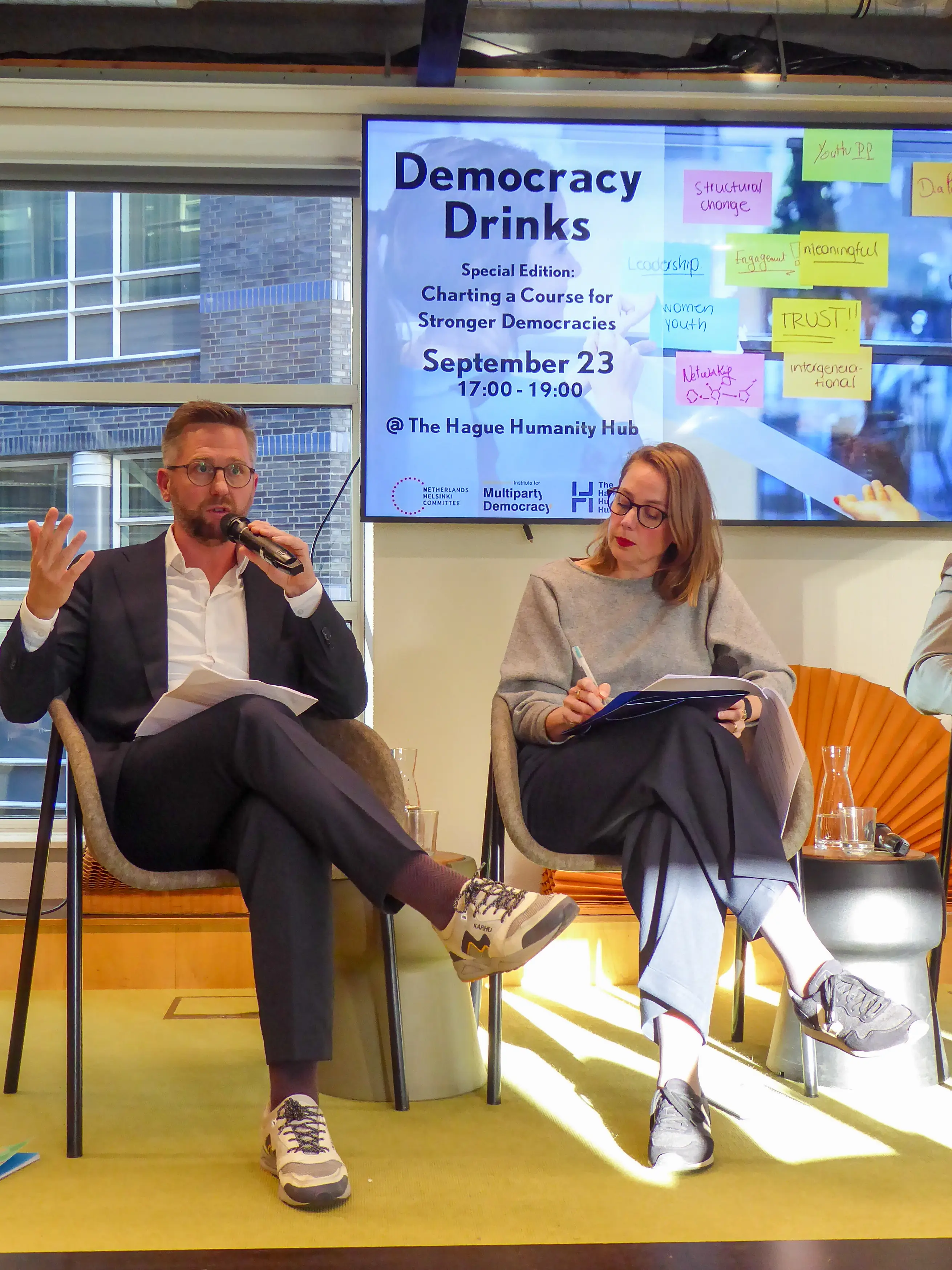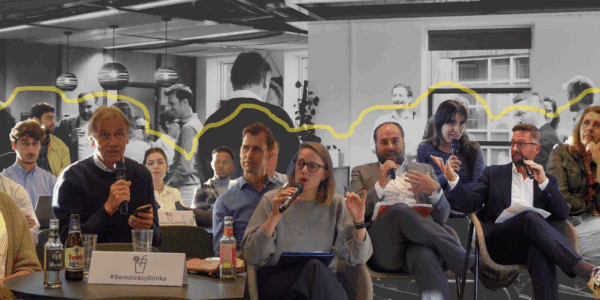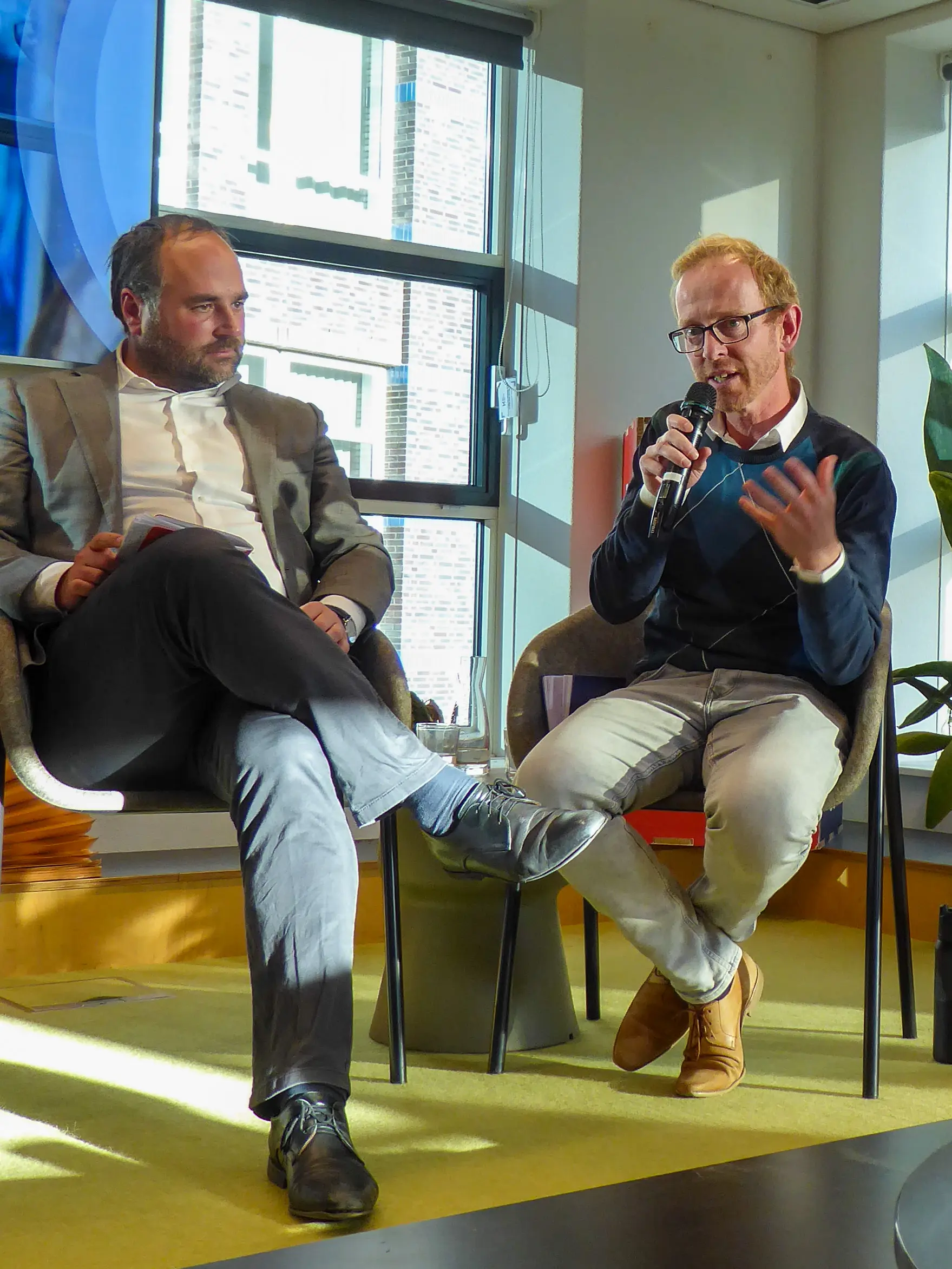On September 23rd, democracy advocates, thinkers and enthusiasts gathered at The Hague Humanity Hub for #DemocracyDrinks The Hague – an ongoing collaboration between the Netherlands Institute for Multiparty Democracy (NIMD), the Netherlands Helsinki Committee (NHC) and The Hague Humanity Hub. In this edition, titled “Charting a Course for Stronger Democracies”, discussion centered on the systemic erosion of democracy across the world, the private sector’s stake in democracy protection, and ways to counter rising autocratic trends.
The panel consisted of Tijmen Rooseboom (Director of NIMD), Bas Bijlsma (Director of Democratie Monitor) and Hugo Knoppert (Co-Founder of Kukura Organics), and was moderated by Anne Colenbrander (Partnership Developer at HiiL). A key theme was the active erosion of democracies worldwide. The panelists were in agreement that this erosion “is a process, not an overnight shift”, often first targeting women’s rights and LGBT+ organisations, civil society, and media freedom. Autocratic actors are also increasingly using democratic language as a legitimising tool, and, in Tijmen’s words:
“We must not be fooled by fake users of democratic words”.

The panelists discussed how this trend manifests in the Netherlands, with Anne pointing out the country’s deteriorating performance across democracy indicators. Bas highlighted that laws such as the recent designation of Antifa as a “terrorist organisation” leave the door open for all democracy defenders to be targeted.
How can we respond? There was consensus in the panel that the best course of action is to call these trends out. Name infringements on civil liberties when we see them occurring, support free media, and confront legitimising tactics for anti-democratic measures. Fundamentally, we must not become complacent about our democracy – whether that’s taking for granted the democratic rights we enjoy or conversely assuming that democracy is failing and giving autocrats the room to attack it.
In the words of Bas:
“Democracies are built from the bottom up. Democracies are not external to us, democracies are us.”

Hugo pointed out that the private sector also has a stake in all this. As the co-founder of Kukura Organics, he cited his own experience working in Zimbabwe, navigating a hostile banking system and bypassing anti-NGO legislation. He highlighted that democracy provides firms with a stable environment to flourish and innovate, and his advice on how to fight back echoed that of the other panelists: the private sector must be more outspoken.
During the Q&A, a guest reflected on the popular narrative that democracy is failing to provide services to citizens. However, Tijmen reminded us that there is minimal evidence that autocracies perform better in comparison – opposition suppression simply leaves little room for the failings of autocracies to be exposed.
Key takeaways
- Fighting back against autocratic forces requires us to call out anti-democratic trends.
“Citizen power is a very strong tool that we should use more”
- Despite what anti-democratic narratives claim, there is a global appetite for more democracy.
- Tijmen urges us to consider recent examples in Bangladesh, Kenya, Serbia, Nepal.
“Young people are very outspoken.”
- The private sector must break its silence in the face of autocracy. Businesses stand to gain from stable, prosperous democracies. Tolerating autocrats will only restrict firms’ freedom to operate.
- Responding to the problem requires us to confront our own blind spots and recognise that not everyone is inherently pro-democracy. As an attendee pointed out during the Q&A,
“If we assume that ‘no one is in favour of fascism,’ aren’t we missing something?”
Democracy and Rule of Law Collective
The session concluded with the launch of the Democracy and Rule of Law Collective, a group of professionals and organisations who come together to exchange ideas, share insights, and explore opportunities for collaboration. We are dedicated to promoting and strengthening democracy and the rule of law as the foundation for secure, just, and resilient societies – at home and around the world. Want to get involved?
Learn more here
